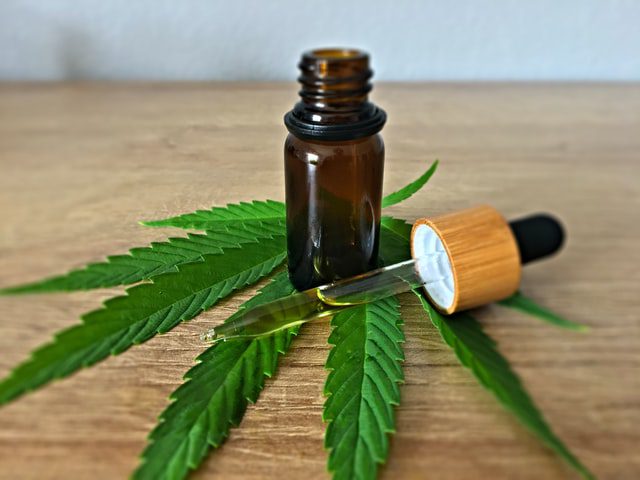Cannabidiol, popularly known as CBD, is a natural compound derived from the Cannabis sativa plant. Unlike its counterpart, THC (tetrahydrocannabinol), CBD does not generate a euphoric “high,” making it an appealing option for those seeking relief from various conditions without the psychoactive effects of marijuana. In recent years, “analysis CBD” has shown tremendous potential in various fields, further substantiating its wide-ranging applications. CBD has gained significant attention both in the medical community and among consumers for its potential therapeutic benefits, such as managing chronic pain, reducing anxiety, and alleviating symptoms of neurological disorders. As researchers continue their in-depth analysis of CBD, new discoveries and uses are constantly emerging, reinforcing the compound’s standing as a versatile and effective natural remedy. The growing body of evidence supporting CBD’s benefits has led to an increase in its popularity and utilization across different demographics, further highlighting the critical need for ongoing and comprehensive analysis of CBD.
Historical Background
CBD’s history dates back centuries when ancient civilizations harnessed the plant for its medicinal properties. Early records indicate that cannabis was used around 2900 BC in China. A renowned Chinese emperor, Shen Nung, recommended it for ailments such as malaria, rheumatism, and even gout. Fast forward to the 19th century, European and American physicians began to explore the medicinal benefits of cannabis, predominantly focusing on its pain-relieving properties.
Mechanism of Action
CBD interacts with the body’s endocannabinoid system (ECS), a complex cell-signaling system identified in the early 1990s. The ECS regulates various functions and processes, including sleep, mood, appetite, and memory. It comprises three core components: endocannabinoids, receptors, and enzymes.
- Endocannabinoids: These are endogenous lipid-based neurotransmitters that bind to cannabinoid receptors.
- Receptors: These include CB1 and CB2 receptors. CB1 receptors are primarily found in the central nervous system, whereas CB2 receptors are more common in the peripheral nervous system, particularly in immune cells.
- Enzymes: These help break down endocannabinoids once they have served their function.
CBD does not bind directly to CB1 or CB2 receptors. Instead, it influences the receptor’s signal, leading to potential therapeutic effects.
Therapeutic Benefits
- Pain Relief: One of the primary reasons people turn to CBD is for pain management. Studies have shown that CBD impacts endocannabinoid receptor activity, reducing inflammation and interacting with neurotransmitters. A study published in the European Journal of Pain demonstrated how CBD applied to the skin could help lower pain and inflammation due to arthritis.
- Anxiety and Depression: Mental health disorders like anxiety and depression can have debilitating effects on overall well-being. Traditional pharmaceutical treatments can lead to side effects such as drowsiness, agitation, and insomnia. CBD has shown promise as a treatment for both depression and anxiety, leading people seeking alternatives to SSRIs (selective serotonin reuptake inhibitors) or benzodiazepines to consider it.
- Neurological Disorders: CBD’s neuroprotective properties have mainly been documented. Disorders such as epilepsy and multiple sclerosis may benefit from CBD treatment. The FDA’s approval of Epidiolex, a CBD-based drug for epileptic seizures, underscores this potential. Moreover, studies suggest that CBD may reduce muscle spasticity in people with multiple sclerosis.
- Skin Conditions: Topical CBD products are becoming increasingly popular for treating various skin conditions. Research has shown that CBD oil can treat acne due to its anti-inflammatory properties and ability to reduce sebum production.
- Cardiovascular Health: Emerging evidence suggests that CBD may benefit heart health. A study indicated that CBD might reduce blood pressure, highlighting its potential for preventing heart conditions. The antioxidant and anti-inflammatory properties of CBD may be responsible for this benefit.
Consumption Methods
CBD can be consumed in various forms, catering to different preferences and needs:
- Oils and Tinctures: These are popular for those new to CBD. They are usually taken sublingually.
- Edibles: Gummies and capsules offer an easy and discreet way to consume CBD. They tend to have longer-lasting effects but a delayed onset.
- Topicals: Creams, balms, and lotions are applied directly to the skin, which is helpful for localized relief from pain or skin conditions.
- Vapes: Inhalation offers rapid delivery of CBD to the bloodstream through the lungs, but it may not be suitable for everyone due to potential respiratory issues.
Side Effects and Risks
While CBD is generally well-tolerated, it can cause some side effects, including dry mouth, diarrhea, reduced appetite, drowsiness, and fatigue. Additionally, CBD can interact with other medications, so individuals need to consult with a healthcare provider before starting any new treatment regimen.
Legal Landscape
The legal status of CBD varies between countries and even states. In the United States, the 2018 Farm Bill federally legalized hemp-derived CBD containing less than 0.3% THC. However, state laws may differ, and it is essential to know local regulations.
Conclusion
CBD represents a promising all-natural alternative for various health concerns. Its potential seems extensive, from pain relief to mental health and neurological to cardiovascular benefits. However, as with any supplement or treatment, it’s crucial to approach CBD products https://iberohemp.com/ with an informed mindset, understanding both their benefits and potential side effects.
As ongoing research unveils more about this compound, it’s encouraging to anticipate further innovations and applications. If you are considering incorporating CBD into your health regimen, consult with a healthcare professional to tailor the approach best suited to your needs.
Help keep news FREE for our readers
Supporting your local community newspaper/online news outlet is crucial now more than ever. If you believe in independent journalism, then consider making a valuable contribution by making a one-time or monthly donation. We operate in rural areas where providing unbiased news can be challenging. Read More About Supporting The West Wales Chronicle

























